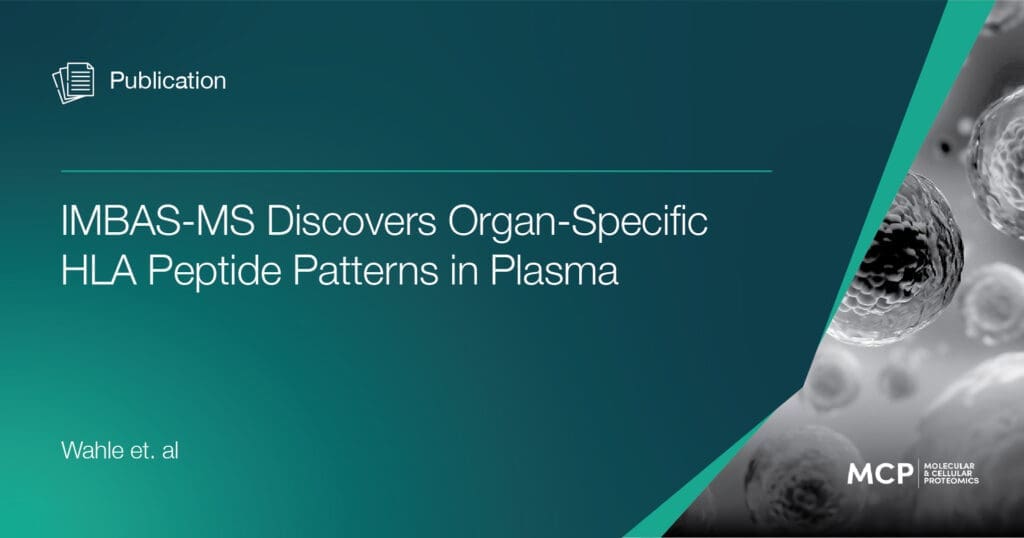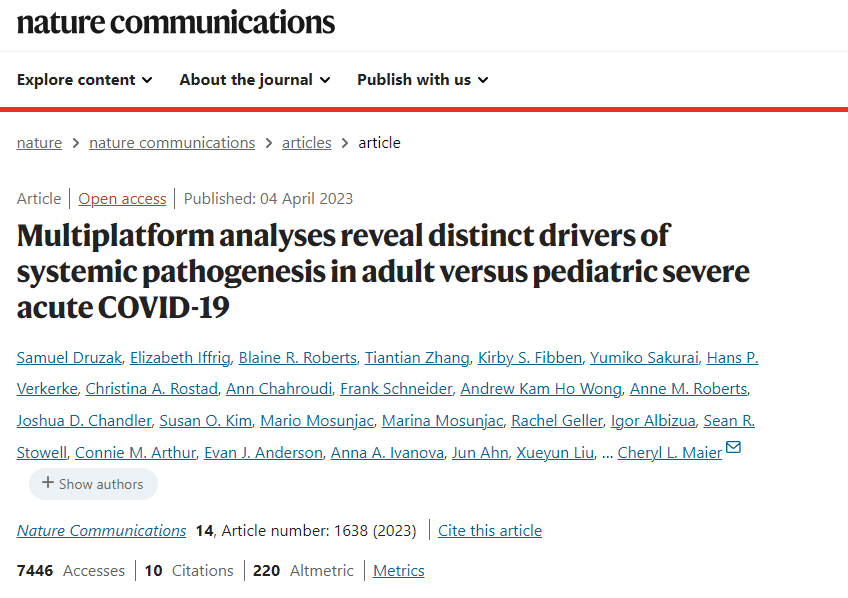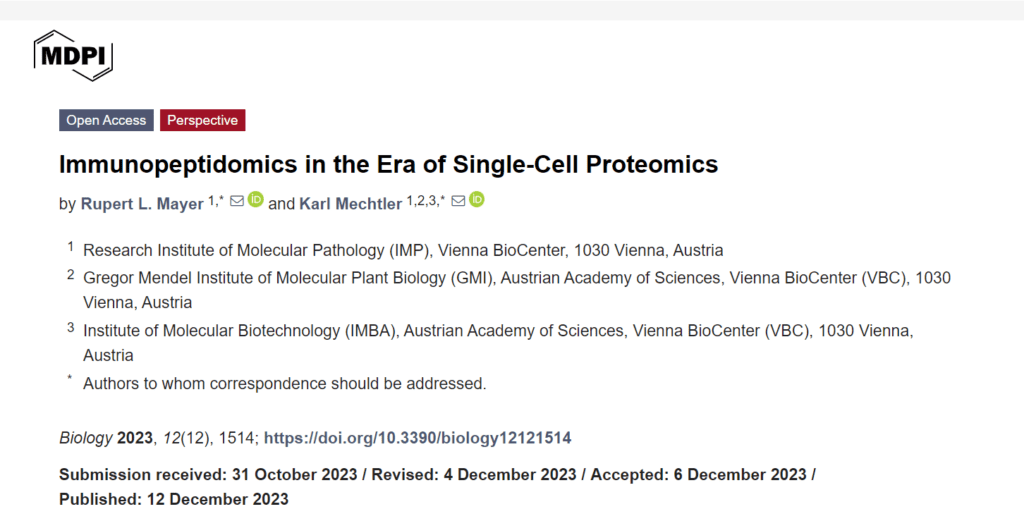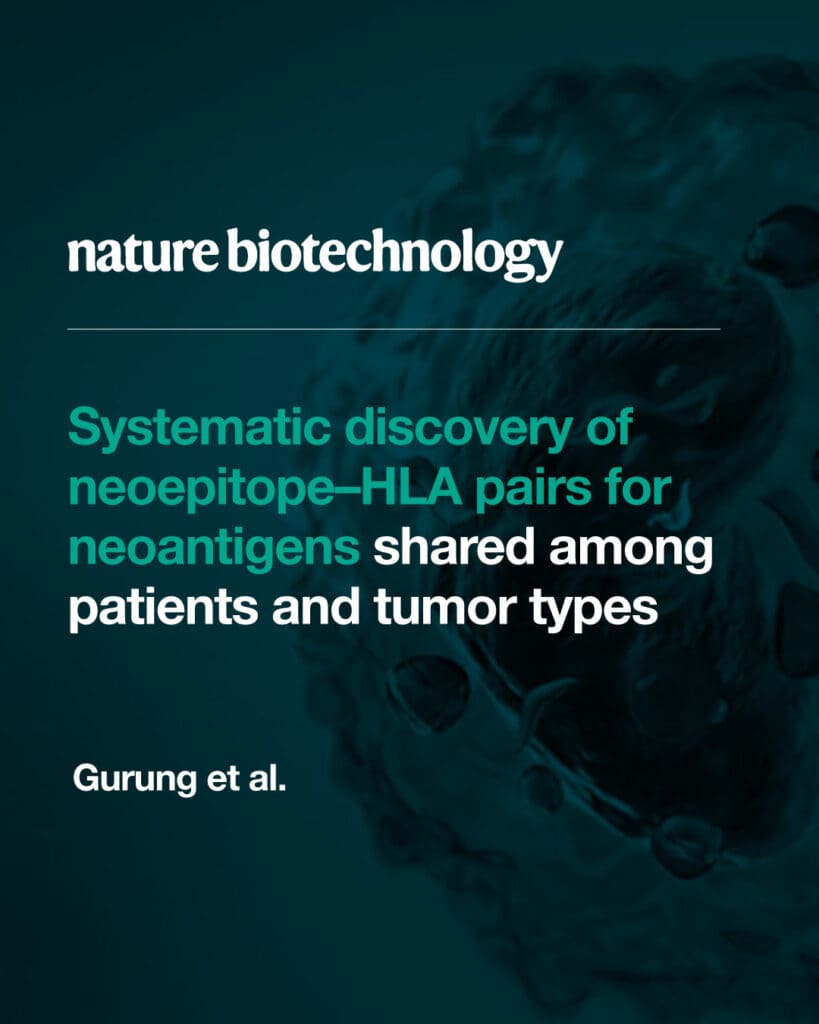
World Immunization Week starts today! From the 24 to the 30 April 2024, the World Health Organization is recognising humanity’s collective efforts to save and improve lives from vaccine-preventable diseases.
This year’s theme is ‘Humanly Possible: Immunization for All’. We can ensure that everyone benefits from vaccines. Research and innovation is a major pillar of this drive. Many vaccines wouldn’t exist without research into immunology more broadly.
Since IonOpticks’ inception, our columns have been used extensively to accelerate research that advances understanding of immunology and immunization.
Every day this World Immunization Week, we’ll update this blog post with a study that, using our columns, has contributed to our understanding of immunology.

Day 1: Contributions to the field of immunopeptidomics
To kick off World Immunization Week 2024, we’d like to celebrate recent work done in the field of immunopeptidomics.
Wahle et al. have developed IMBAS-MS, a groundbreaking immunopeptidomics workflow which automates and simplifies immunopeptidomics for specialised labs and mass spec facilities, enabling the quantification of 5000+ HLA class I peptides from only 200 μl of plasma in 30 minutes. IMBAS-MS holds immense potential for earlier interventions and more effective treatments, making it a true game-changer in the field of immunology and clinical research.
The IonOpticks Aurora Elite CSI column allowed for enhanced sensitivity and accuracy in this study.
To read more about how IonOpticks’ column was used in the study titled, click IMBAS-MS Discovers Organ-Specific HLA Peptide Patterns in Plasma.

Day 2: Contributions to better understanding COVID-19
We can’t talk about #WorldImmunizationWeek without mentioning COVID-19.
The incredible research efforts into SARS-CoV-2 in recent years have enabled unprecedented vaccine and treatment progress.
For day 2 of World Immunization Week 2024, we’re highlighting work by Druzak et al.
Their work shed light on why the disease manifests differently in adults versus children.
IonOpticks’ Aurora Elite columns supported these proteomics studies as a part of a multiplatform approach to analyse immune response, gene expression, and clinical data from severe COVID-19 patients of different ages.

Day 3: Highlighting challenges in developing vaccines against emerging pathogens
As we observe Day 3 of World Immunization Week, we shine a light on research into diseases that don’t yet have a vaccine.
Climate change is expanding the range in which ticks can live, making research into pathogens like F. tularensis all the more important to prevent increasing case numbers of tularemia.
A recent study by Schütz et al. investigates the transcriptomic and proteomic changes in F. tularensis subspecies holarctica (Fth), the causative agent of the zoonotic disease tularemia, during its transition from mammalian hosts to tick vectors.
The study provides insights into Francisella’s transmission mechanisms, life cycle, and its interactions with vectors, which is crucial for developing effective preventive measures.
The Aurora Elite CSI column facilitated comprehensive proteome profiling, aiding in the characterization of Fth’s adaptive responses.

Day 4: Harnessing the Power of Neoantigens
Today we highlight a study that demonstrates the safety and feasibility of an autologous dendritic cell (DC) vaccine targeting neoantigens in early-stage non-small cell lung cancer patients.
Ingels et al. successfully induced long-lived, neoantigen-specific T cells with diverse differentiation states, including stem cell memory T cells, suggesting the potential for durable anti-tumor immunity.
This study paves the way for a promising adjuvant therapy approach in resectable lung cancer, addressing a significant unmet need.
An IonOpticks Aurora series column was employed for immunopeptidomics analyses, enabling the detection of naturally processed and presented neoantigens, validating the neoepitope prediction algorithm.

Day 5: A positive path to new immunotherapies against MPM
For World Immunization Week Day 5, we take another look at immunopeptidomics, a powerful tool for identifying novel tumor-specific antigens. This would be crucial for developing effective cancer immunotherapies.
A study by Chiaro et al. unveiled the MHC-I antigen landscape of malignant pleural mesothelioma (MPM), a highly aggressive cancer, using immunopurification and mass spectrometry techniques.
They discovered immunogenic peptides capable of activating CD8+ T cells and inducing tumor cell killing, demonstrating their potential as targets for mesothelioma vaccines.
This research paves the way for innovative immunotherapies against MPM.
An Aurora Ultimate column enabled robust peptide separation and identification in this study.
Day 6: A perspective on the role of technological advancements in the field of immunopeptidomics

As World Immunization Week nears its end, we take a look at a perspective on the state of immunopeptidomics, which has seen significant advancements in sensitivity and throughput in recent years.
Immunopeptidomics, the study of MHC-presented peptides, is a rapidly growing field within proteomics. Mayer & Mechtler’s perspective highlights how technological innovations initially developed for single-cell proteomics have aided the evolution of immunopeptidomics
Miniaturized sample preparation, developments in mass spectrometers, and efficient peptide separation using columns like IonOpticks’ Aurora series have significantly improved analytical depth. The Aurora series has enabled efficient separation of limited immunopeptide samples, contributing to the field’s progress.
The ability to analyze smaller samples, such as needle biopsies, has significant implications for vaccine development, cancer immunotherapies, and understanding antimicrobial resistance. As immunopeptidomics continues to mature, it holds great clinical potential.
Day 7: Hear it straight from one of the leading minds in immonopeptidomics research
This World Immunization Week, we’ve shared a selection of great papers that we think showcase the power and potential of immunopeptidomics and immunology more broadly – without which, vaccines wouldn’t exist.
So, we thought it would wrap up the week nicely to hear from one of the leading minds in immunopeptidomics research, Prof. Tony Purcell.
Tony is a Professor and the Head of the Purcell Lab at Monash University’s Biomedicine Discovery Institute, which specializes in immunoproteomics. We’ll let him tell you a little more about this class-leading facility, but in this video, he talks about our collaboration and how working together has helped us refine our products and, more importantly, contribute to critical areas of disease research and immune recognition.
We’re incredibly proud to play a role in crucial work like this and move the capabilities of human health research forward as a whole.
Hear it from Professor Tony Purcell himself:
 Welcome to our new web site!
Welcome to our new web site! 









